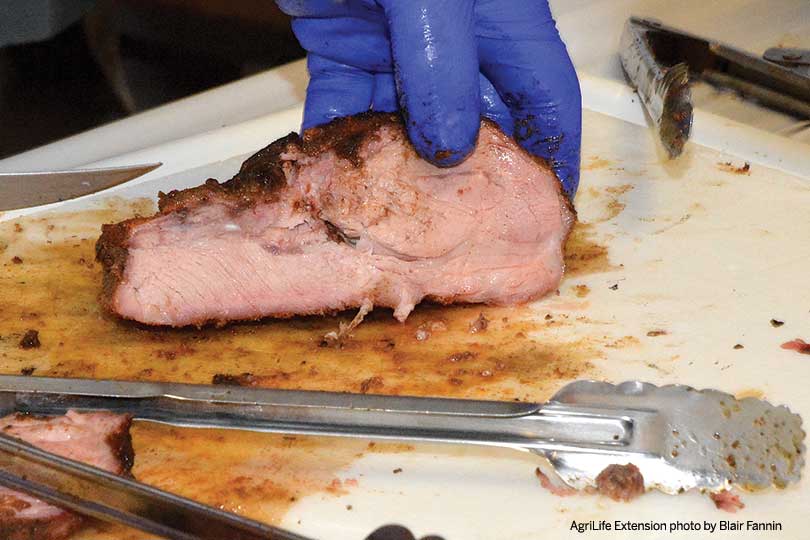By Justin Walker
Communications Specialist
Traditional summertime grilling meats are seeing prices fall after the Memorial Day weekend, according to a Texas A&M AgriLife Extension Service expert.
Most meat prices increased as the first summer holiday approached, which is traditionally expected, Dr. David Anderson, AgriLife Extension economist, said.
“Stores and restaurants were stocking up for several weeks leading up to the holiday, but we’re past Memorial Day and stores are restocking and restaurants are ordering,” he said. “But I would say the seasonal rally in beef cuts is done.”
Ribeye prices and most steak cuts have fallen significantly in the last few weeks, Anderson noted, but the Fourth of July should bring another bump.
Pork prices and futures activity are feeling the African swine fever outbreak in China, Anderson said. Roughly 25 percent of the Chinese herd has been wiped out since it began.
“The disease has boosted their hog slaughter and left a lot of questions about future supplies,” he said. “China consumes more pork than any other country. They have large cold storage supplies, but they will run out, and there is some expectation of high future prices on U.S. pork based on anticipation of more exports to China.”
Buyers in the U.S. began purchasing more pork to avoid potential high future prices, Anderson said. Now that supplies have been bought, there is a high level of uncertainty and possible price volatility for pork.
It is expected to be another record year for pork from a production standpoint, he said. If China begins to increase pork imports later this year or in 2020, prices could increase. But with ongoing trade negotiations between the two countries, they could look elsewhere, resulting in prices dipping.
“As an economist, a 25% reduction to the herd and production should lead to higher prices there,” Anderson said. “You should see prices on all meats go up there as consumers and prices react to rising pork prices.”

